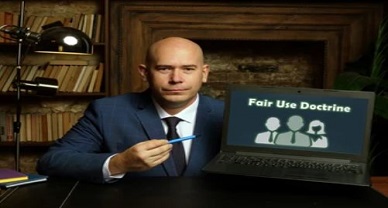Doctrine of Minimum Guarantee for ‘Saving’ Debt From Damages?
Introduction
This piece begins by dissecting the dichotomy of the treatment of Take or Pay(‘ToP’) obligations under gas contracts, where the obligation is differentiated between debt and damages, leading to a different accordance and consequently different reliefs. It is argued that the treatment of a claim under the contract as debt is validly possible in light of the Doctrine of Minimum Guarantee (‘Doctrine’), a principle in electricity contracts that has escaped the considerations of courts.
Take or Pay: The Conundrum of Debt or/and damage
Take and pay obligations are contractual provisions mandating that the buyer of energy must certainly pay for a certain quantity regardless of whether it takes or not takes the product. Under such clauses, a quantity of minimum product is fixed which has to be honoured. If the buyer takes the product up to the minimum quantity or above it, he has to pay accordingly for such purchase. However, if he fails to take the minimum quantity, he still has to pay for the deficit which he did not take. These provisions are different from Take and Pay obligations where the buyer has to pay when product is off taken and breach arises due to non-payment after supply or non-supply on request. ToP provisions may prima facie sound harsh or conferring undue advantage under the contract. However, such special provisions are industry-specific, catering to the risk of keeping the producing mechanism ready, which itself requires heavy investment. Gas industry, where such provisions are almost ubiquitous, suffers from the loss of gas generated if not transferred due to the non-renewable nature as well as the complexity in storage of the product. Thus, commercial contracts require addition of such obligations to keep the business running.
However, when a dispute arises under such a contract, the key question before courts and arbitral tribunals is how the claims are to be perceived under the scheme of the Indian Contract Act 1872. When no product is transferred as per the direction of the buyer but still the liability to pay occurs, the ToP obligation appears to be in the form of damages clause. Certainly, when a contract specifies the compensation or quantum to be paid when a party fails to uphold its consideration, the same is in the nature of liquidated damages. This becomes a secondary obligation which is triggered when the product is not taken by the buyer and is common to every commercial contract.

However, ToP obligations can also be interpreted as a primary obligation on the part of the seller to make available the product, indifferent of whether the same is taken or transmitted by the buyer. In such a case, it is no more the transfer of title of the product that has a reciprocal promise of money to be paid; it is actually the act of making available the product that is made payable. Thus, the payment for the availability of the product accrues as a debt and not a damage payable. A debt under contractual is not the value to be paid upon breach but the actual consideration that arises out of the contract in monetary terms. Debt-based application of ToP clauses is very restrictive, however stays afloat due to the varied interpretation of the contracts.
Why would such distinction be necessary? This question is answered by the difference in treatment of debt and damage. The former comes with a responsibility to mitigate, meaning that any money made due to the product being sold to a third party in absence of procurement by the buyer would be subtracted to award the damages. However, a primary obligation in the form of debt is not subject to consequent mitigation. It is a trite law that only breaches need to be mitigated, not the original performance of the contract. Thus, the debt accrues in the original value in the contract stipulated. In terms of the contract, this translates into a huge quantum in comparison to damages.
While the law on whether a claim is for debt or damage has been settled by the SC, pronouncement by Indian Courts on ToP clauses have been limited. The only influential pronouncement is the case of Hindustan Petroleum Corporation Ltd. v. Dhampur Sugar Mills Ltd. by the Delhi High Court. Here too, the plea of debt claim was not considered.
What is the Doctrine of Minimum Guarantee?
In the electricity sector, minimum Guarantee provisions allow the seller to secure charges when the buyer declines to take the product. Such provisions mandate that the seller must keep ready a certain quantity and the buyer must reciprocally take that quantity of the product mandatorily or otherwise pay for that quantity. Regardless of either usage or not, the buyer is liable to pay for the availability of the product. However, it also confers express duty to provide such minimum guarantee, failure of which could lead to a claim for breach or compensation as mandated by the contract. Thus, the Doctrine provides for the payment of charges in lieu of providing the minimum supply notwithstanding the actual consumption by the buyer. The Doctrine got a statutory recognition under Section 22 of the Indian Electricity Act 1910. This was later supplanted by fixed charges under Section 45 of the Electricity Act 2003.
The first treatment of the Doctrine by the Supreme Court of India (‘SC’) in the case of Amalgamated Electricity Co. Ltd. v. Jalgaon Borough Municipality (‘Amalgamated Electricity’), where the SC recognised the common practice of nominating a percentage that was made compulsory for the buyer to pay for. The court also noted the independence of the payment from actual consumption or transmission by the buyer. The development bolstered the presence and sanctity of the Doctrine in the electricity industry. It is pertinent to note, that in cases where the seller/producer itself is at fault with the transmission of the product, the contract embodying the Doctrine does not get determined completely. Instead, the consumer is allowed to receive respite for the time period where such supply is impacted, as held by the SC in Bihar State Electricity Board v. Dhanawat Rice and Oil Mills.
Application of the Doctrine to Take or Pay Clauses
As far as the application of the Doctrine from the electricity industry to gas sector is concerned, the same has been done by the SC. In the case of ONGC v. Assn. of Natural Gas Consuming Industries of Gujarat, the Supreme Court found that the petitioner ONGC’s contracts with Minimum Offtake Guarantee clauses were valid in law, citing authority from Amalgamated Electricity. The Supreme Court upheld the judgement of the Gujarat High Court under appeal, which had accepted ONGC’s contention of keeping a high stipulation of minimum guarantee quantity owing to the loss occasioned in case the gas had to be flared when no supply was sought. Thus, commercial prudence coupled with the niceties of the product could validly influence the contractual considerations.
With regards to giving way to a debt claim, the SC’s opinion in Amalgamated Electricity certainly sheds much needed light on the validity of ToP as a debt. In this case, the SC noted that the contract provided the consumers a facility to either switch on or off the electricity supply while the supplier had to keep the lines running for the stipulated time. In pure commercial sense, such supply regardless of the actual consumption was an obligation under the contract which had to be fulfilled so as to provide the consumers with such a minimum guarantee. Even in terms of minimum offtake, it is actually the supply of the gas that has to be provided while the buyer has the ability to get it according to his whims. Essentially, when interpreted so, the minimum guarantee payment thus caters to the availability of the product and not actually the consumption of the product. The extent of similarity between electricity and gas contracts, especially the primacy to supply regardless of actual consumption, allows the Doctrine to be used in ToP clauses.
Therefore, the Doctrine allows ToP obligations to be treated as a primary obligation so that they could constitute debt and not damage. Another viewpoint is the nature of ToP obligations. During the course of contract, when the buyer chooses to not take the product, that directly does not cause a default or breach as it is contractually allowed to either take the product or not. Such an interpretation protects the commercial sanctity of a gas contract, which has been entered into to provide security to the seller. Therefore, ToP clauses can allow payment for underconsumption or purchase below the minimum quantity specified to be treated as debt claims.
The gas industry is unique, more so with the non-renewable aspect of the product. Indian jurisprudence, therefore, needs to adapt to honour ToP contracts that aim at protection against losses more than prescribing penalties. Countries like the UK have adopted such an interpretation through the contracts in question.[1] Indian courts can seek assistance from the Doctrine to yield the same result.
Author:– Kartikey Tripathi, in case of any queries please contact/write back to us at support@ipandlegalfilings.com or IP & Legal Filing.
[1] Cavendish Square Holding BV (Appellant) v Talal El Makdessi, [2015] UKSC 67.


